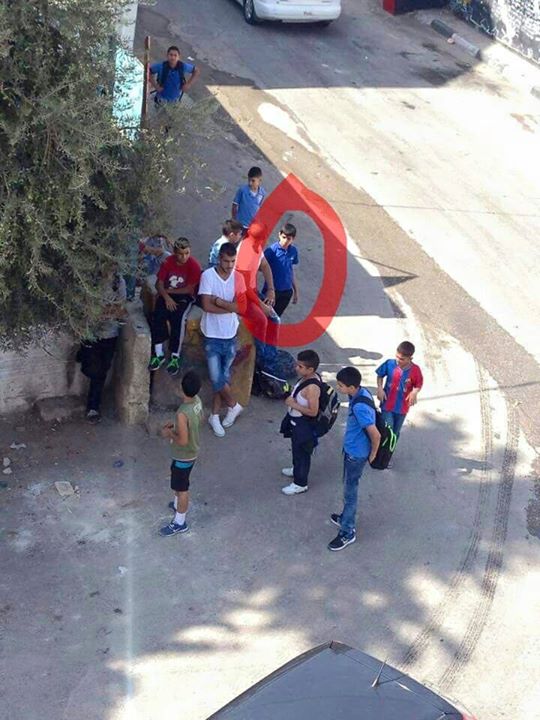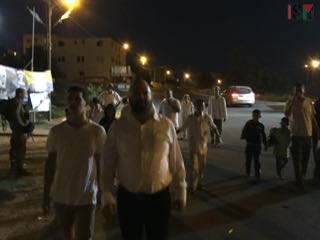Tag: Settlers
-

12 year old Palestinian killed in Bethlehem as violence explodes across the West Bank
5th October 2015 | International Solidarity Movement, Al-Khalil team | West Bank, occupied Palestine Abed al-Rahman Shadi Obeidallah, 12 was still in his school uniform when he was rushed in a civilian car to Beit Jala hospital from Aida refugee camp in Bethlehem today. The boy, from from a Al Kahder village, was shot in the…
-

Settlers continuously trespass on private Palestinian land with police protection
3rd October 2015 | International Solidarity Movement, Al-Khalil team | Hebron, occupied Palestine Last night, a group of about two dozen Israeli settlers trespassed on private Palestinian land in al-Khalil (Hebron), protected by the Israeli police. Firday evenening, a group of about two dozen settlers from the illegal settlement of Kiryat Arba again came to…
-

Israeli forces escalate restrictions and violence against Palestinians during Sukkot-holiday
2nd October 2015 | International Solidarity Movement, Al-Khalil team | Hebron, occupied Palestine Monday, Tuesday and Wednesday, the 28th – 30th September 2015 is the Jewish holiday of Sukkot. In the occupied West Bank city of al-Khalil (Hebron), while Israeli settlers from the many illegal settlements within al-Khalil celebrate their holiday, Israeli forces have escalated…
